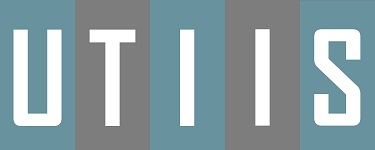On-Site
Factory Audits
UTIIS performs thorough on-site factory audits for your chosen supplier. Our reviews are designed to minimize your risk and exposure to defective products and any other aspects that could hinder your company's production process.
Our factory audits are comprehensive and take into account the following areas:
Quality Systems
What happens if your company receives a few shipments that are acceptable, but the next batch that you receive are defective?
An inconsistent supplier can hinder your company’s key operation and cost you time and money. UTIIS performs quality systems audits to ensure that your company obtains consistent quality delivery of your orders in each shipment. Our inspectors are there to assess your supplier’s productions systems to guarantee that their assembly line can produce quality products not just once but every single time.
Quality systems audits examine human resource elements:
- Management Systems
- Employee Involvement
- Leadership effectiveness
- Manufacturer’s focus on quality and improvement

Our quality systems audits are performed throughout different time intervals and consider several factors such as management, machinery, and other production equipment. We complete thorough inspections of all factory machinery to confirm optimal fabrication performance at all stages of production.
Social Compliance

Your company may be keen on following best practices and staying compliant with regulatory agencies, but how can you be sure that your suppliers are doing the same? This question is even more critical when your manufacturer is thousands of miles from you in a different part of the world.
Much of your success depends on how well your manufacturer can deliver. You depend on them, and their failure in one area can affect your bottom line and get in the way of your progress.
To prevent this from happening UTIIS conducts social compliance audits to confirm that your manufacturer is responding appropriately to their industry’s regulations and that they are in no way compromising your products or your business as a result of their inefficiencies.
Some of the social compliance factors we look at include:
- Manufacturer’s liability insurance
- Appropriate use of protective gear for staff
- Waste material disposal
- Adherence to fire and safety codes
UTIIS is well aware that any such event can negatively affect your company and permanently damage a well-established reputation. When you enlist our audit services, you are applying one of the best protective measures against damaging your public image and your business.
This type of audit can drastically reduce your company’s exposure to not just production delays, but also protect your public reputation by ensuring that you are not working with a supplier that violates ethics in any area, including the treatment of its own workers.
Security
If you have business locations in the United States, a security audit ensures that your chosen manufacturer adheres with C-TPAT (Customs-Trade Partnership Against Terrorism) regulations. This portion of the review looks for any potential risks associated with terrorist activities inside an organization. These anti-terrorism regulations were established by U.S. Customs and Border Protection to identify any weaknesses within the supply chain that could be exploited by terrorist organizations. A security audit verifies that your supplier under C-TPAT is following best practices.
